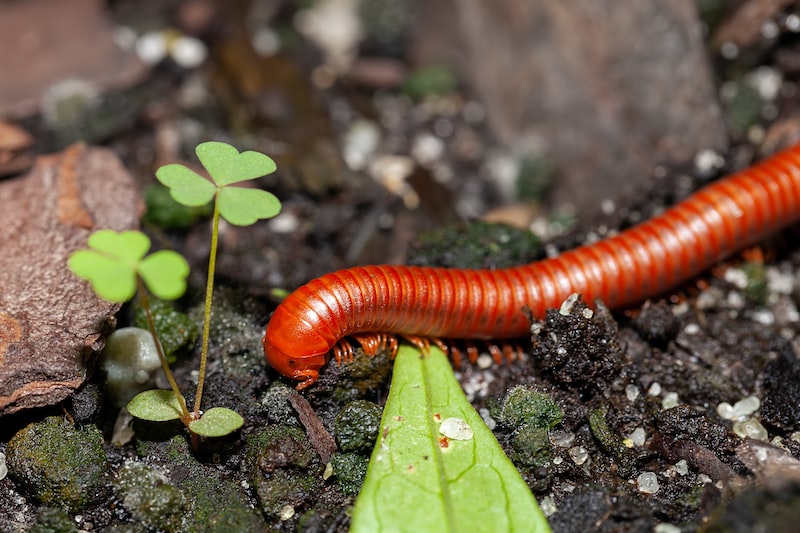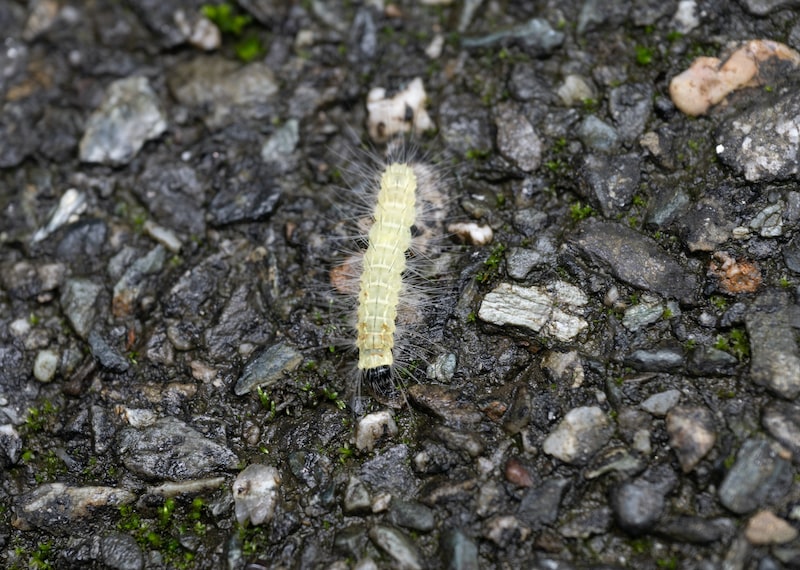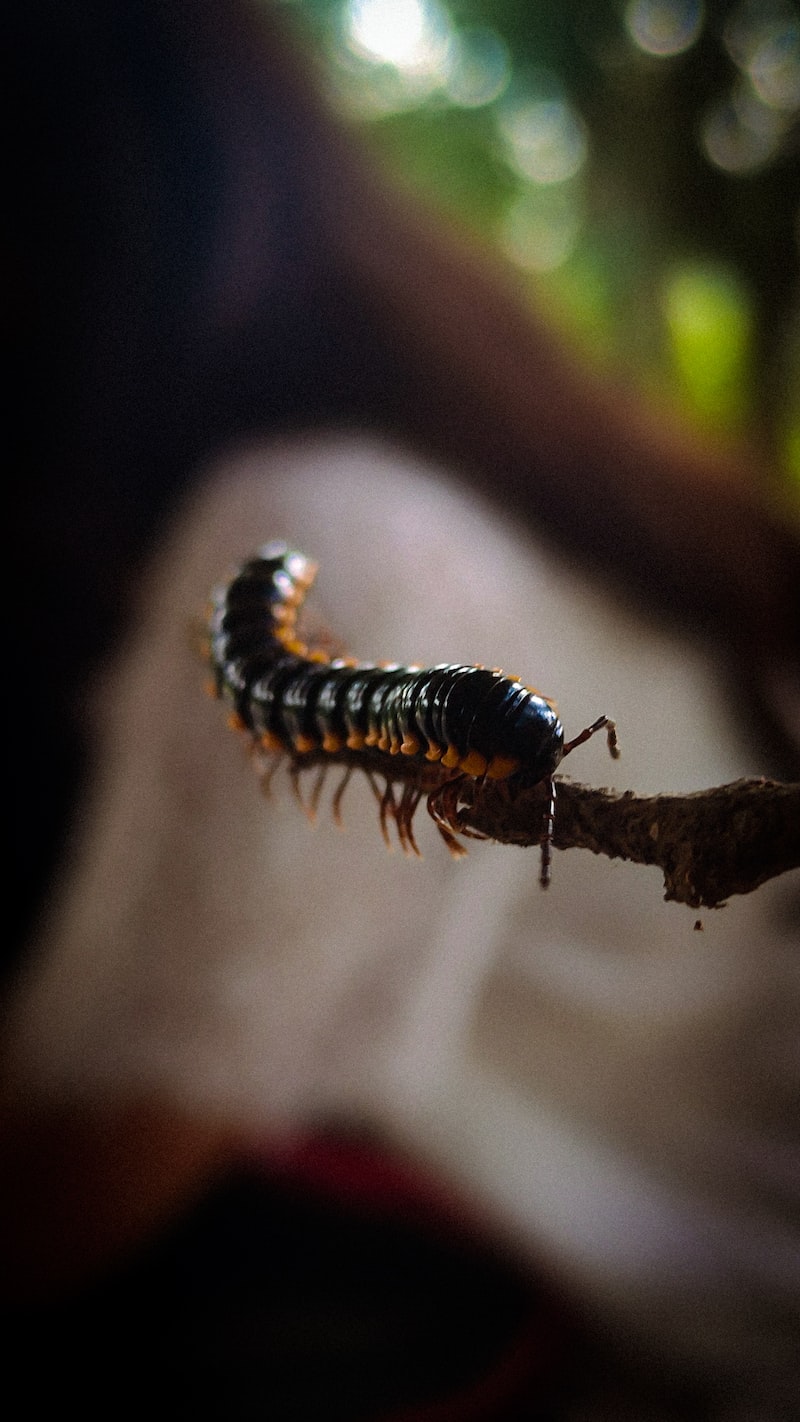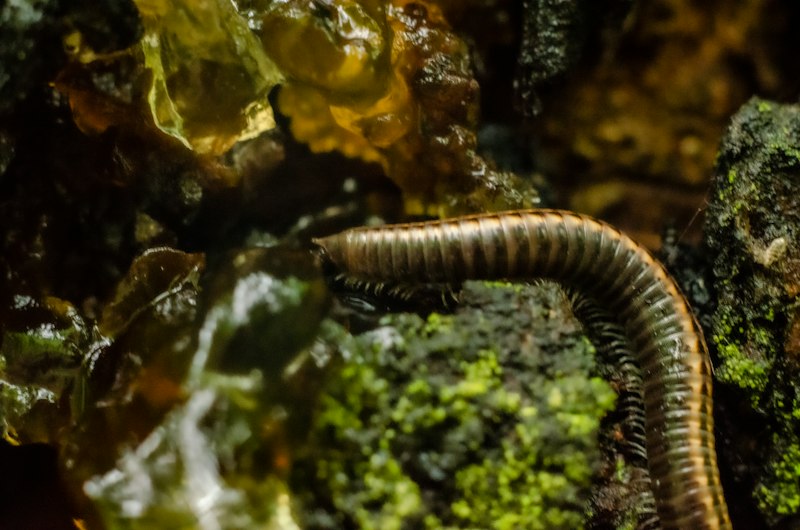Table of Contents
Are you tired of having creepy-crawly house centipedes scurrying around your home? Don’t worry, because we’ve got you covered. In this article, we’ll delve into the world of home pest control and share effective tips and tricks to banish those pesky house centipedes for good.

House centipedes are nocturnal insects that thrive in dark, damp environments. They have long, segmented bodies and multiple legs, which can be quite unsettling to encounter. While they’re not harmful to humans and actually help control other pests like spiders and cockroaches, their presence can still be a cause for concern.
So, how can you bid farewell to these creepy critters? The first step is to eliminate their preferred hiding spots. House centipedes love moisture, so make sure to fix any leaks or plumbing issues in your home. Repairing cracks in walls and floors will also prevent them from finding cozy nooks to hide in.
Another effective strategy is to reduce clutter. Cluttered areas provide excellent hiding places for house centipedes, so tidy up your living spaces and minimize the number of objects lying around. By creating a clean and organized environment, you’ll make it less attractive for these unwanted guests.
Sealing entry points is crucial when it comes to pest control. House centipedes can squeeze through tiny openings, so inspect your doors, windows, and foundation for any gaps or cracks. Use caulk or weatherstripping to seal those entry points, effectively cutting off their access to your home.
If house centipedes have already made their way indoors, using sticky traps can be an effective solution. Place these traps in areas where you’ve noticed their activity, such as basements, bathrooms, or dark corners. The sticky surface will trap the centipedes, preventing them from roaming freely.
banishing house centipedes from your home requires a combination of preventive measures and targeted action. By eliminating their hiding spots, reducing clutter, sealing entry points, and using sticky traps, you’ll be well on your way to a centipede-free environment. So, take charge of your home pest control and bid farewell to these unsettling intruders once and for all!
Unveiling the Secrets of House Centipedes: Expert Tips for Effective Home Pest Control
Do you often find yourself startled by the sight of a creepy-crawly house
centipede scurrying across your floor? If so, you’re not alone. These multi-legged creatures can be quite surprising and unsettling. But fear not! In this article, we’ll reveal the secrets of house centipedes and provide you with expert tips for effective home pest control.House centipedes are fascinating creatures that belong to the arthropod family. They have long bodies covered in numerous legs, which can make them appear rather intimidating. However, these centipedes are actually beneficial predators that help control other pests in your home. They feed on insects like cockroaches, spiders, termites, and ants, making them natural pest exterminators.
To effectively manage house centipedes in your home, it’s important to focus on eliminating their food sources and creating an inhospitable environment for them. Start by keeping your living space clean and tidy. Regularly vacuum and sweep the floors to remove any crumbs or debris that might attract insects. Seal up cracks and crevices where bugs can enter, paying close attention to areas like windows, doors, and baseboards.

Moisture is another factor that attracts house centipedes, so make sure to reduce excess humidity in your home. Fix any plumbing leaks and use dehumidifiers in damp areas such as basements or bathrooms. By depriving them of food and moisture, you’ll discourage house centipedes from taking up residence in your home.
If you still encounter house centipedes despite your best efforts, consider using natural remedies or pesticides. Essential oils like peppermint, lavender, or tea tree oil can act as deterrents for many pests, including centipedes. Alternatively, you can opt for insecticides labeled specifically for centipede control. Remember to follow the instructions carefully and use them only in areas where centipedes are present.
house centipedes might be startling creatures, but they play a vital role in keeping other pests at bay. By maintaining cleanliness, reducing moisture, and employing natural remedies or pesticides if necessary, you can effectively control house centipede populations in your home. Embrace these expert tips and bid farewell to those unexpected encounters with these fascinating creatures. Your home will become a more peaceful and pest-free environment for you and your family.
Say Goodbye to Creepy Crawlies! How to Eliminate House Centipedes Safely and Swiftly
Are you tired of those creepy crawlies lurking around your home? You’re not alone! House centipedes can be quite the unwelcome guests. Their numerous legs and lightning-fast movements can send shivers down anyone’s spine. But fear not, because in this article, we’ll guide you on how to bid farewell to these unsettling creatures safely and swiftly.
So, how do you tackle these house centipedes? The first step is to identify areas where they thrive. These pests are commonly found in damp and dark places like basements, bathrooms, and crawl spaces. Once you’ve located their hideouts, it’s time to take action.

One effective method to eliminate house centipedes is through thorough cleaning. Decluttering your living space deprives them of hiding spots. Vacuuming regularly, especially in hard-to-reach corners, can remove any lurking centipedes or their eggs.
Another approach is to reduce the moisture levels in your home. Centipedes are attracted to damp environments, so fixing leaks and improving ventilation can make your space less appealing to them. Installing dehumidifiers in problem areas will help create an inhospitable environment for these critters.
If you’re looking for natural remedies, there are a few options worth considering. Diatomaceous earth, a fine powder made from fossilized algae, acts as a desiccant that dehydrates centipedes upon contact. Sprinkle it in areas where you suspect their presence, such as cracks, crevices, and baseboards.
Essential oils, such as peppermint or tea tree oil, are also known to repel house centipedes. Dilute a few drops in water and spray the solution in infested areas. Not only will it keep the centipedes at bay, but it’ll also leave your home smelling fresh and pleasant.

In more severe cases, professional pest control services may be necessary. Experts can assess the situation, identify entry points, and apply targeted treatments to eradicate centipedes effectively. Additionally, they can offer advice on preventive measures to keep these pests from returning.
By following these strategies, you can say goodbye to those creepy crawlies known as house centipedes. Remember, cleanliness, moisture control, natural remedies, and professional assistance are your allies in this battle. Soon enough, your home will be free from these unwelcome guests, allowing you to enjoy a peaceful and pest-free environment.
House Centipedes: Unwelcome Guests or Natural Pest Controllers? Exploring the Role of these Elusive Insects
Have you ever encountered a long-legged, fast-moving creature darting across your floor? If so, you might have come face-to-face with a house centipede. These intriguing arthropods, with their numerous legs and lightning-fast speed, often evoke mixed reactions from homeowners. Are they unwelcome guests to be feared and eliminated, or could they actually play a beneficial role in controlling pests in your home?
At first glance, house centipedes may seem like something out of a horror movie, but appearances can be deceiving. Despite their somewhat intimidating looks, these creatures are actually skilled hunters, preying on a variety of household pests such as spiders, cockroaches, silverfish, and termites. They possess venomous pincers that inject paralyzing toxins into their prey, immobilizing them for consumption. Their impressive speed allows them to swiftly chase down and capture their victims, making them natural-born pest controllers.
While the sight of a house centipede scurrying across your wall may startle you, it’s important to remember that they are harmless to humans. They do not bite or sting unless provoked, and their venom is not dangerous to us. Instead, their presence can serve as an indicator of a healthy ecosystem within your home. House centipedes thrive in environments where there is an abundance of small insects for them to feed upon. Their very presence suggests that other pests may be present, and the centipedes are there to keep those populations in check.
Think of house centipedes as nature’s little exterminators, tirelessly patrolling your home in search of unwanted intruders. They can be particularly useful in basements, bathrooms, and other areas prone to high levels of dampness and humidity, which are attractive to many pests. By allowing house centipedes to coexist with you in your home, you are essentially benefiting from a free pest control service they provide.
Of course, it’s understandable if you find the idea of sharing your living space with these leggy creatures unsettling. If that’s the case, there are steps you can take to minimize their presence without resorting to harmful chemicals or extermination. Ensuring your home is well-sealed and free of entry points can help prevent them from entering in the first place. Additionally, reducing the population of other small insects by practicing good sanitation and removing potential food sources can make your home less appealing to house centipedes.
while house centipedes may initially startle you with their appearance and swift movements, they can actually serve as natural pest controllers in your home. These elusive insects prey on common household pests, keeping their populations in check. By coexisting with house centipedes, you can benefit from their free pest control services while maintaining a healthy ecosystem within your home. So, the next time you spot one scurrying across the floor, perhaps give them a second thought before reaching for the nearest shoe.
From Nightmare to Peaceful Nights: Transform Your Home into a Centipede-Free Zone
Are you tired of encountering creepy crawlies like centipedes in your home? Don’t fret! In this article, we’ll reveal some effective tips and tricks to transform your home into a centipede-free zone. Say goodbye to those unsettling nightmares and hello to peaceful nights!
Centipedes are nocturnal creatures that thrive in dark, damp areas. They often seek shelter in basements, bathrooms, and other moist corners of your home. To keep them at bay, start by eliminating their favorite hiding spots. Declutter your basement, seal any cracks or crevices, and fix leaky pipes. By creating a dry and inhospitable environment, you’ll significantly reduce the chances of a centipede infestation.
Another crucial step is to minimize their food sources. Centipedes primarily feed on insects, spiders, and other small pests. So, if you have an insect problem, it’s time to take action. Use natural pest control methods like diatomaceous earth or sticky traps to get rid of unwanted pests. Regularly clean your home, paying special attention to dark corners and hidden areas where insects might be lurking.
Did you know that centipedes hate certain scents? Yes, it’s true! They’re repelled by the strong aroma of essential oils such as lavender, peppermint, and tea tree oil. Mix a few drops with water in a spray bottle and generously spritz around your home, especially near entry points like windows and doors. Not only will it keep centipedes away, but it’ll also leave your home smelling fresh and inviting.
If you want to go the extra mile, consider using natural barriers. For example, sprinkle a line of food-grade diatomaceous earth around the perimeter of your home. This powdery substance is harmless to humans and pets but deadly to centipedes and other pests. They’ll avoid crossing the line, keeping your living spaces centipede-free.
Remember, creating a centipede-free zone requires consistency. Stay vigilant and implement these strategies regularly to maintain a pest-free environment in your home. With a little effort and these handy tips, you can bid farewell to your centipede nightmares and enjoy peaceful nights once again.





